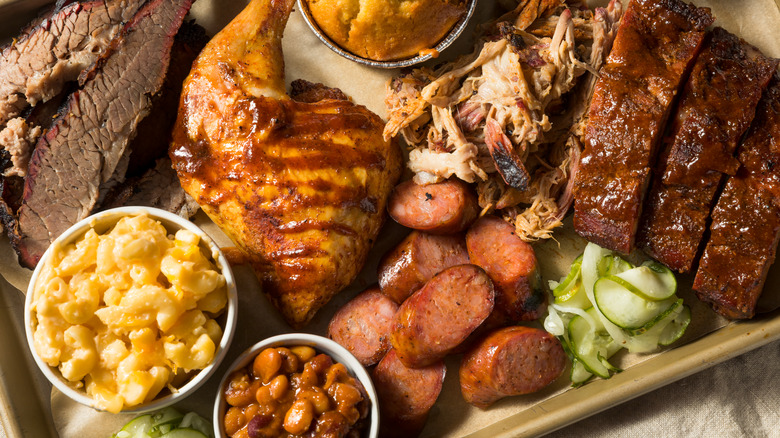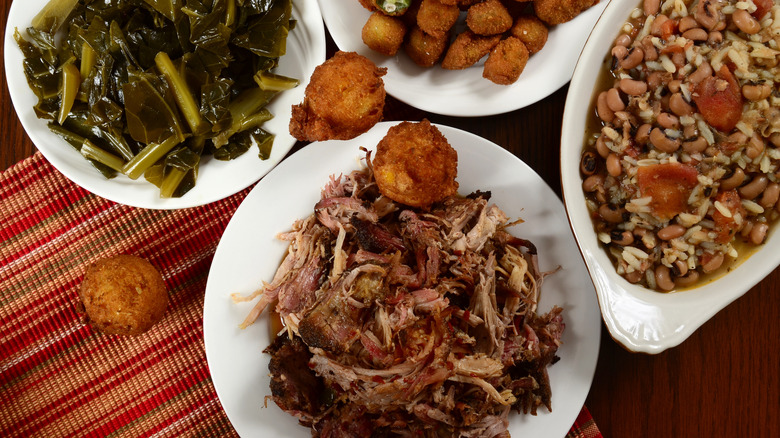Why BBQ Food Became A Staple Of Juneteenth Celebrations
Independence Day is marked by the flag, the fireworks, and the smoky barbecue, a Fourth of July tradition, to kick off the patriotic festivities. That being said, July Fourth isn't the only time Americans can be seen sizzling meats from the comfort of their backyards. Juneteenth, which is now celebrated across all 50 U.S. states on June 19th, claims the cuisine as its own, too. Existing on the soul food spectrum might be your first guess for why barbecue is a staple of Juneteenth celebrations. However, doing some digging unveils the cookout as anything but a mere pastime; it is a symbol of togetherness.
For a brief history lesson, the holiday commemorates the end of the Civil War — and the beginning of freedom for enslaved African Americans. The story goes that Gordon Granger, a Major General for the Union Army, alerted slaves residing in Galveston, Texas of their release from bondage. Since then, every summer, Black Americans gather to celebrate the holiday over specialties that symbolize the struggle for emancipation. Some culinary traditions to have emerged include foods colored red on Juneteenth – think red beans and rice, red drinks like strawberry soda, and, of course, barbecued meats – with "prosperity meals" such as cornbread and collared greens rounding out the spread.
Barbecue is a form of connection
Roasting meat over a flame is a time-intensive practice that takes a lot of patience — and helping hands — to bring the feast to fruition. For marginalized groups facing oppression, this slower form of cooking fostered a sense of togetherness. Historical documents back up the emergence of this ritual, too. In a 2015 Texas Monthly piece by Daniel Vaughn, the barbecue correspondent poured over print dailies from the Reconstruction era and detailed the annual custom — sharing in the spoils of chargrilling — that occurred long, long before President Biden codified the holiday in 2021.
Acknowledgment of the past — and the progress achieved — regularly shows up in conversations on Juneteenth shindigs. Barbecue invites breaking bread (or beef?), which inspires connection over the common experiences Black citizens have long endured. Dominique Leach, a Chicago-based restauranteur, told the Institute of Culinary Education, "There's something spiritual about firing up the grill with family and celebrating what we have overcome as Black Americans." Chew on those concepts — perseverance, remembrance, justice — while passing those hot links across the picnic table.

